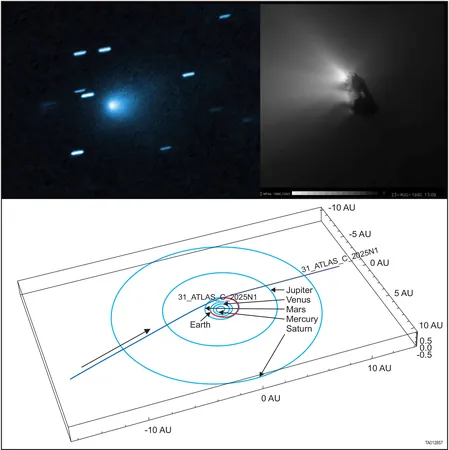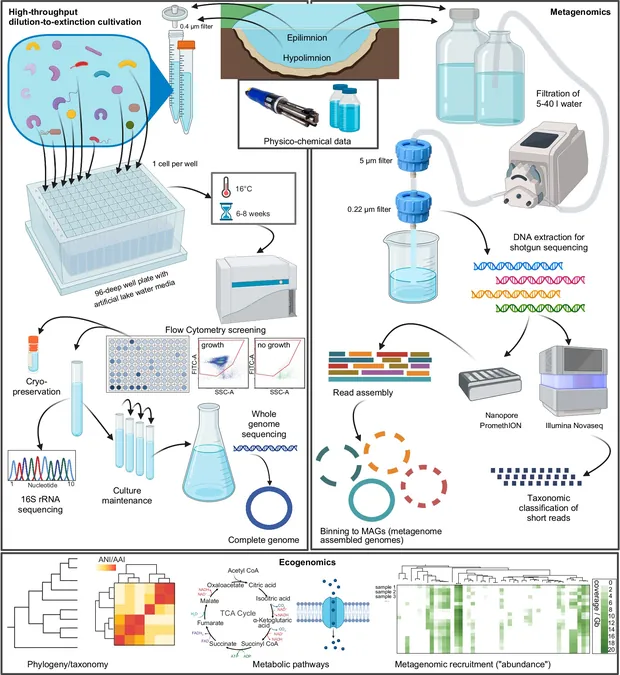
Unlocking Hope: How GLP-1 Medications Could Slash Cancer Risk for the Obese
2025-08-21
Author: Nur
A Game Changer in Cancer Prevention for the Obese
A groundbreaking study published in JAMA Oncology reveals that glucagon-like peptide-1 receptor agonists (GLP-1 RAs), initially designed to control blood sugar in type 2 diabetes, may significantly lower cancer risks among individuals grappling with obesity. This research is particularly focused on endometrial, ovarian, and meningioma cancers.
The Alarming Obesity Epidemic and Its Cancer Link
With over 100 million adults in the U.S. classified as obese—a condition tied to at least 13 different cancer types—the urgency for effective interventions is more pressing than ever. Previous studies have primarily examined GLP-1s in diabetic patients, leaving a gap in understanding their potential protective effects on those with obesity, independent of diabetes.
Research Highlights and Findings
The study compared cancer incidences among 86,632 obese adults, splitting them between over 43,000 GLP-1 users and nonusers. Remarkably, users displayed a lower overall cancer incidence: 13.6 versus 16.2 per 1,000 persons. The research indicated that GLP-1 medications reduced the risk of endometrial cancer by 25% and ovarian cancer by a staggering 47%. Meningioma risk saw a reduction of 31%.
The Numbers Behind the Numbers
Using sophisticated statistical modeling, researchers validated these findings while acknowledging a potential increase in kidney cancer risk—though this was not statistically significant. The comparative analysis also highlighted the different types of cancer evaluated, such as lung, breast, and colorectal cancers.
Clinical Implications and Next Steps
Study authors emphasized the significance of these findings in addressing public health, stating that even minor adjustments in cancer risk can have vast implications considering that 137 million Americans could potentially benefit from GLP-1 therapies.
Promising Preclinical Evidence
Earlier trials continue to bolster these findings, revealing that GLP-1s can inhibit ovarian cancer cell proliferation and invasion, suggesting an antitumor effect in ovarian tissue. Moreover, around 355 meningiomas were found to express GLP-1 receptors, indicating a direct metabolic response to these drugs.
Caution: Observational Limits and Future Directions
Despite these promising results, researchers caution that the study's observational design cannot definitively establish causality. Factors such as lifestyle differences and comorbidities weren't fully accounted for, potentially skewing the results. Future research with larger sample sizes is essential to validate these associations.
The Path Forward: Healthier Futures Await
As the focus intensifies on personalized medicine and tailored cancer risk assessments, the study articulates a clear need for further long-term investigations into the effects of GLP-1s on cancer risk, especially in high-risk communities. The hope is that this could pave the way for more comprehensive strategies aimed at combating both obesity and related cancers.




 Brasil (PT)
Brasil (PT)
 Canada (EN)
Canada (EN)
 Chile (ES)
Chile (ES)
 Česko (CS)
Česko (CS)
 대한민국 (KO)
대한민국 (KO)
 España (ES)
España (ES)
 France (FR)
France (FR)
 Hong Kong (EN)
Hong Kong (EN)
 Italia (IT)
Italia (IT)
 日本 (JA)
日本 (JA)
 Magyarország (HU)
Magyarország (HU)
 Norge (NO)
Norge (NO)
 Polska (PL)
Polska (PL)
 Schweiz (DE)
Schweiz (DE)
 Singapore (EN)
Singapore (EN)
 Sverige (SV)
Sverige (SV)
 Suomi (FI)
Suomi (FI)
 Türkiye (TR)
Türkiye (TR)
 الإمارات العربية المتحدة (AR)
الإمارات العربية المتحدة (AR)